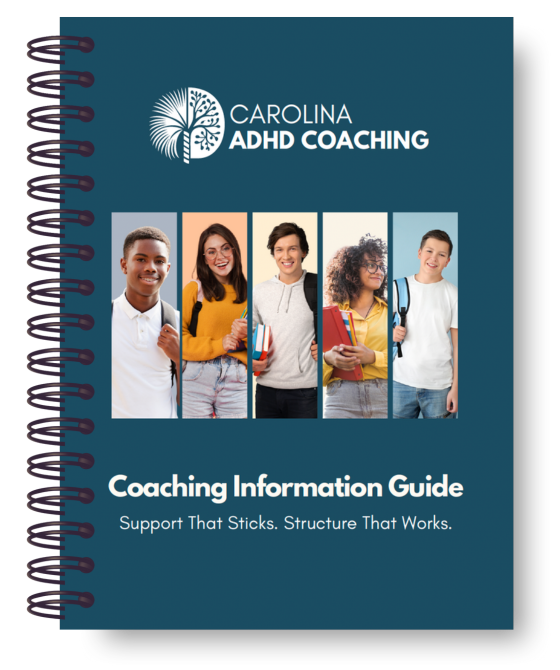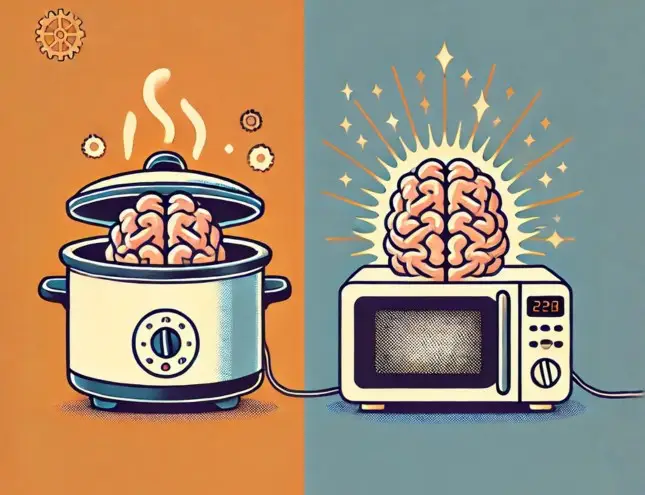Assignments aren’t getting turned in. The bedroom looks like a tornado hit it. Important papers? Missing in action.
As a parent, it’s easy to wonder: Should we just clear the schedule and hunker down on school?
Is football, debate club, or even art class still worth it — when the basics aren’t even getting done?
It’s a common crossroads for parents of teens with ADHD or executive function challenges. When your child struggles with organization, time management, or follow-through, adding more can feel impossible.
But here’s the surprising truth: the right extracurricular activities can actually help build executive function skills in teens — not drain them further.

How Activities Build Key Executive Function Skills
✨ Done right, activities like sports, creative classes, and clubs can boost focus, time management, and resilience — exactly the skills your teen needs to thrive at school and beyond. ✨
It might seem counterintuitive — how can adding more to your teen’s schedule help with executive function skills?
In reality, extracurriculars give teens real-world ways to practice the very skills they struggle with. Unlike worksheets or apps, activities provide built-in structure, deadlines, teamwork, and accountability — all of which exercise executive function muscles.
| Executive Function Skill | How Extracurriculars Support It |
|---|---|
| Time Management | Managing practice times, rehearsals, game days, and deadlines teaches planning and scheduling. |
| Organization | Keeping track of uniforms, supplies, instruments, or materials reinforces personal organization. |
| Task Initiation | Regular meetings and start times build routines and help teens practice showing up and getting started. |
| Working Memory | Remembering plays, routines, rules, or performance steps exercises working memory in an engaging way. |
| Emotional Regulation | Sportsmanship, teamwork, performance pressure, and group dynamics build coping and resilience. |
| Perseverance & Flexibility | Handling setbacks, adjusting to changes, and persisting through challenges strengthens grit and adaptability. |
But not all activities build these skills equally — and for teens with ADHD or executive function challenges, the right fit really matters. Let’s look at which types of extracurriculars tend to help most.
Which Types of Activities Help Most
When it comes to building executive function skills, not all extracurriculars are created equal. The best activities for teens with ADHD or executive function challenges tend to share a few key traits:
✅ Built-in structure and routine
✅ Clear roles, expectations, and deadlines
✅ Opportunities for collaboration and feedback
✅ A safe space to practice resilience and flexibility
Here are some types of activities that often support these skills well:
🏈 Athletics & Team Sports
- Develop time management, teamwork, perseverance, and emotional regulation.
🎭 Performing Arts (Theater, Dance, Music)
- Strengthen working memory, organization, self-regulation, and sustained attention.
🧑🏫 Academic & Special Interest Clubs (Debate, Robotics, Science Olympiad)
- Build planning, task initiation, and flexible thinking in a structured environment.
💛 Service Projects & Leadership Programs
- Encourage responsibility, organization, and goal-directed persistence.
🎨 Creative Hobbies (Art, Coding, Writing, Design)
- Support focus, self-paced planning, and intrinsic motivation.
Of course, finding the right balance is key — especially when your teen is still learning to manage schoolwork and daily demands. Let’s talk about how to fit activities in without overwhelm.

How to Balance Activities Without Overwhelm
It’s natural to worry about overloading your teen — especially if they already feel behind on schoolwork or struggle with daily routines.
The goal isn’t to pack the schedule or add pressure. It’s to choose 1–2 well-fitting activities that provide structure and motivation, without tipping into overwhelm.
Here are a few tips to help find the right balance:
✅ Start small. One activity is plenty to begin with — quality over quantity.
✅ Consider your teen’s energy patterns. After-school vs. weekend, structured team vs. individual pursuits.
✅ Watch for signs of stress. It’s okay to adjust — this is a learning process.
✅ Involve your teen in the choice. When they’re invested, buy-in and follow-through improve.
✅ Pair with supportive routines. Coaching, Academic Coaching Studio, or home strategies can help teens manage both schoolwork and activities more smoothly.

Helping Your Teen Choose the Right Activities (Without the Power Struggles)
When you start talking about activities, teens with ADHD or executive function challenges may swing between extremes:
🗣️ “I can do it all!”
🗣️ “I don’t want to do anything.”
🗣️ “You don’t believe in me?”
It’s easy for the conversation to derail into arguments, guilt, or pressure.
Here are some conversation tips to help keep things positive and collaborative — not a battle:
✨ P.S. These aren’t “one-size-fits-all scripts” — just ideas to inspire how you talk with your teen. Every home, every relationship, and every teen is unique. Take what fits your style — and speak in your voice. ✨
If your teen says: “I can do it all!”
✅ “I love your enthusiasm. Let’s look at how much time everything really takes, so you’re not stretched too thin.”
✅ “Sometimes even adults need to practice balancing — it’s not about not believing in you, it’s about setting you up to succeed.”
If your teen says: “You don’t believe in me.”
✅ “Actually, I do believe in you — and part of believing in you is helping you build skills to manage everything you want to do.”
✅ “This isn’t about whether you can do it. It’s about how we can make sure you have the time and energy to enjoy it and do well.”
If your teen says: “I don’t want to do anything.”
✅ “That’s okay — we don’t have to decide today. Sometimes it helps to try one small thing and see how it feels.”
✅ “Activities aren’t about adding stress — they’re about finding something you enjoy that helps with confidence and life skills.”
A Step-by-Step Approach to Choosing and Managing Activities
1️⃣ Start with a collaborative list.
Sit down and brainstorm activities your teen is curious about — no pressure. Include past favorites, new ideas, or even “maybe” options.
2️⃣ Time reality check.
Look at the family calendar and school load together. How many hours a week are reasonable? What days/times tend to be best for energy and focus?
3️⃣ Choose 1–2 activities max to start.
Reassure your teen that trying fewer things at first is smart — they can always add later if it’s going well.
4️⃣ Set clear expectations.
Talk about basic commitments: showing up on time, bringing needed materials, communicating if issues come up.
5️⃣ Build in reflection points.
Set a time (ex: after 1 month) to check in: Is it fun? Is it building confidence? Is it causing stress? Adjust if needed — this models self-awareness and responsibility.
6️⃣ Discuss “what if” plans.
Talk openly about what happens if schoolwork falls off, or if the activity becomes overwhelming. Not as punishment — but as shared problem-solving.
7️⃣ Celebrate progress.
Acknowledge when your teen sticks with an activity, shows resilience, or manages time well — this reinforces the executive function wins you’re aiming for!
“Choosing the right activity with your teen isn’t just about filling time — it’s about helping them build ownership, balance, and life skills that last.”
How Coaching Can Help Build Executive Function Skills in Teens
If your teen is struggling with organization, time management, follow-through, or motivation, you’re not alone. Many teens — especially those with ADHD or executive function challenges — need extra support to develop these skills.
Coaching isn’t just about academics.
It’s a holistic, well-rounded approach that helps teens build confidence, self-awareness, and the executive function skills they need to succeed — both in school and in life.
In coaching, we work on:
✅ Organization and planning — building systems that actually fit how your teen’s brain works
✅ Time management — learning to break tasks down and manage competing priorities
✅ Task initiation — developing strategies to get started, even when motivation is low
✅ Self-monitoring — noticing what’s working (and what’s not) and adjusting
✅ Emotional regulation — building resilience and coping skills for school, activities, and social life
When we strengthen executive function skills in teens, we’re helping them create a foundation for long-term success — not just for this school year, but for life.

Get an inside look at how our coaching works, what to expect, and how to get started. It’s free — and packed with helpful info for parents and students!
Download the Guide


